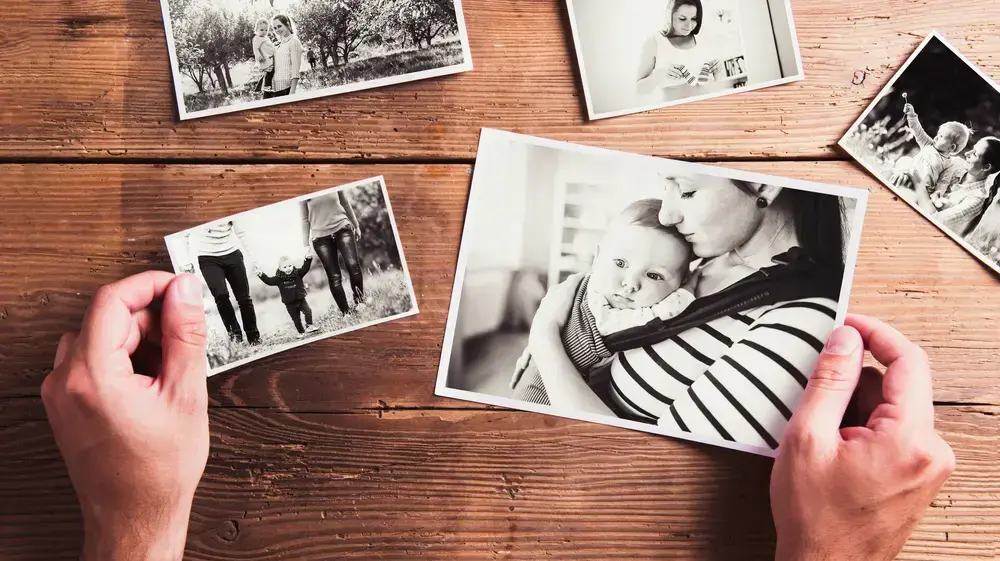health
parenthood
This is the age when your children's first memories are formed
A new study has found that our earliest memories are formed a whole year earlier than previously thought.
At what age do children begin to document and preserve memories?
The details and explanations in the article
Tags
memory
Children
parents
Walla!
health
Tuesday, 29 June 2021, 07:09 Updated: 07:17
Share on Facebook
Share on WhatsApp
Share on general
Share on general
Share on Twitter
Share on Email
0 comments
Memory is an essential part of shaping our personality and who we become in our adulthood.
It is very difficult to pinpoint the point in time when our first memories were formed, but that is exactly what a group of researchers tried to do, and they believe they succeeded.
Until now, the idea was that the earliest memories are formed between the ages of 3 and 4, but a new study claims that memories can begin to form a year earlier, around the age of two and a half.
The researchers relied here on existing data from various databases, and analyzed them over 21 years.
The article, published under the title: "What is your earliest memory? Depends" focuses on the ability of children and adults to return to their earliest memories, and was written by researchers from Memorial University in Newfoundland.
More on Walla!
A quarter of adults do not want children, and they are no less happy than you
To the full article
The memories are not static, they are more like a moving target.
Old photos (Photo: ShutterStock)
"When someone's earliest memory is created it is more like a moving target than a static memory. Accordingly, the answers people provide to the question, 'What is your earliest memory?' It is not a domain memory with a beginning and an end, but more like a pool of possible memories from which they sample something, "wrote Dr. Carol Peterson, the lead researcher and expert on amnesia (forgetfulness disease) in children.
On the other hand, Peterson also said that she And her colleagues believe that people remember from the age of two much longer than they know.They also suggested a possible explanation for the lack of full awareness of these early memories: "First, it is relatively simple to make people remember early memories. Enough to ask them 'what is your earliest memory?' Then ask them to remember a few more ... it makes them remember things even earlier - sometimes these are things that happened even a year earlier (from the memory they started from). It's like running a pump,After a few clicks, she starts pumping herself. "
The second reason is that memories are often incorrectly dated in our brain in a systematic way.
This happens because people tend to attribute to themselves in memory an older age than the age they really were.
In our early memories we tend to attribute to ourselves an older age.
Toddler walking (Photo: ShutterStock)
The telescope effect
In the current study, the researchers examined the memories of 687 participants who took part in the experiment since 1999, and they described a process they call the 'telescope effect'.
The effect makes people think that something happened a short time ago, and it causes people to err in the correct position of an event in their memory on the timeline.
In other words this effect makes you think your memories are fresher than they really are.
More on Walla!
Researchers from Israel recommend that all women consider having an amniocentesis test
The child three hours a day on the smartphone?
This is what can happen
Thousands of Israelis have already come out of the red.
Want to know how?
"The farther the memory, the more the telescopic effect will make you think it happened later. It turns out that many people 'promote' their earliest memories in a year or so, to the age of three and a half. However, we found that when a child or adult remembers events after age 4, It happens less, "Peterson said.
After examining further studies alongside her research findings and telescope effect theory, Dr. Peterson concluded that humans have the ability to access memories from an earlier age than researchers have hitherto thought.
Share on Facebook
Share on WhatsApp
Share on general
Share on general
Share on Twitter
Share on Email
0 comments








